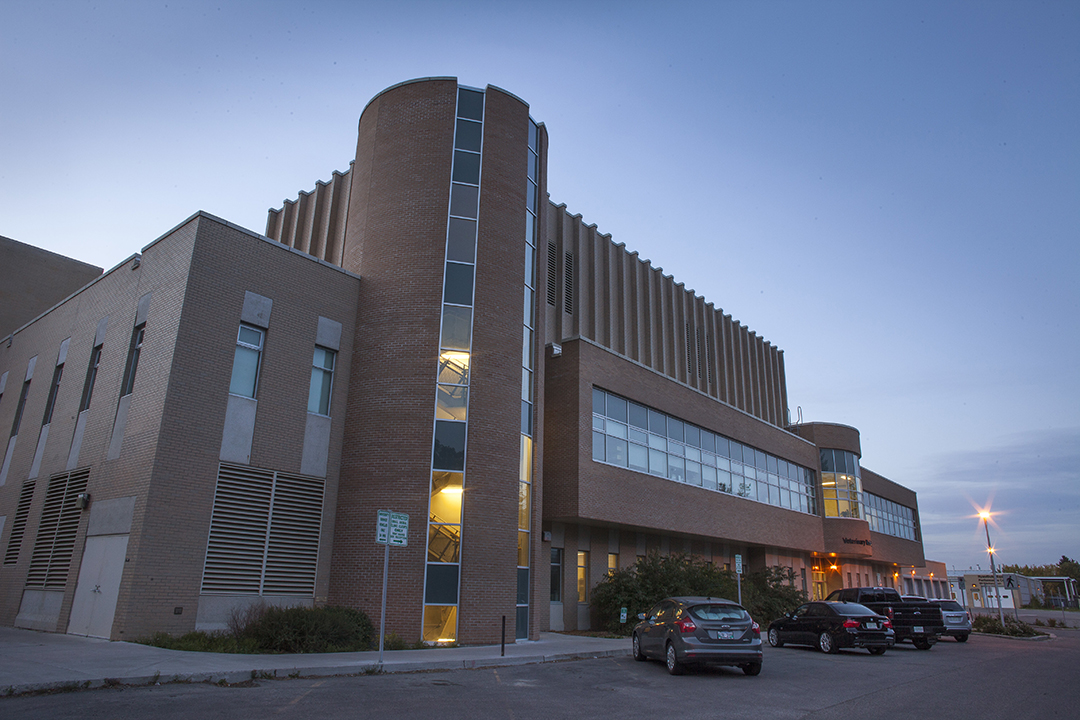
Message to our referral community
On June 11, Dr. Stephen Manning sent the following message to the WCVM Veterinary Medical Centre's referral community. Manning is the WCVM's associate dean of clinical programs and a member of the VMC's strategic leadership team.
Upcoming meeting for referring veterinary clinics
Town hall meeting for the VMC referral community
WCVM Veterinary Medical Centre’s leadership team will be available for questions
7:00 to 8:15 p.m., Wednesday, July 14, 2021
Click here to join Webex meeting
I have some news about clinical operations at the WCVM Veterinary Medical Centre (VMC). As you know, we are all facing an unprecedented caseload in veterinary medicine in Saskatchewan and across Western Canada. The VMC’s small animal emergency and referral service has been busier than ever, and we are grateful for your faith in us to provide care for your patients.
However, we continue to struggle with the well-documented shortages in veterinarians and registered veterinary technologists. In particular, we are experiencing a shortage in small animal emergency veterinarians. As of July 1, 2021, we will face an even more significant staffing shortage than we have in the past, which means that we may not be able to provide care to all patients that present to the VMC.
TRIAGE AND DEFERRAL OF CASES
During the veterinary teaching hospital’s COVID-19 outbreak this spring, we instituted a policy of triage and deferral of cases, and our plan is to continue this policy until further notice.
Through this process, small animal patients that are triaged as “stable” or “seriously ill” may be deferred to seek care elsewhere.
Unfortunately, there will be situations where patients will suffer while their owners drive away from our doors to seek care elsewhere. We hope that Saskatoon-area veterinary practices can help provide urgent care for these additional cases that we cannot see at the VMC.
In some instances, the VMC’s policy of triage and deferral of cases will also affect referred patients. Clients commonly present their animals through our emergency service in the hopes of securing a referral to one of the VMC’s specialty services. But now there may be circumstances where our clinical team can’t see these patients and it will be necessary for the owners to seek alternative options for care. We are doing everything we can to minimize the impact on our clients and to continue seeing as many patients as possible.
FOCUS ON PATIENTS REQUIRING EMERGENCY AND 24-HOUR CARE
Traditionally, the VMC’s emergency service has served two key roles: we see a large number of cases that would routinely be managed in daytime practice, and we take on cases that occur after hours and on weekends when other veterinary practices are closed. However, since the COVID-19 pandemic began in early 2020, our hospital’s ability to see less emergent cases has been significantly reduced due to long wait times. This is the current situation around the clock — during regular hours as well as after hours and on weekends.
We realize that many veterinary clinics are running at or over capacity, but due to these exceptional circumstances, we need your help. Please continue to do everything you can to manage these less acute cases in your own veterinary clinics so the VMC’s clinical team can focus on patients requiring emergency and 24-hour care. Please continue calling the VMC in advance to seek quotes and wait times before sending your patients to the VMC’s emergency service so your clients are adequately prepared.
The VMC’s clinical team has always done as much as possible to provide care and support to our community, but sadly, we have met the limit of our available resources on several occasions over the past 18 months. We can no longer guarantee that the VMC will be a 24-hour care option for you or your clients, and we may soon be forced to move the veterinary teaching hospital to a solely referral emergency service model.
When external 24-hour care options are not available in the community, the obligation will fall to individual veterinary clinics to provide extended service to their clients, so please be prepared for the worst-case scenario. By working together and ensuring that our emergency resources are reserved for true emergencies, I’m hopeful that we can continue to provide the care that the community needs.
Regards,
Steve Manning, DVM, MSc, DACT
Associate Dean, Clinical Programs
Western College of Veterinary Medicine (WCVM)
306-966-7109 | stephen.manning@usask.ca

